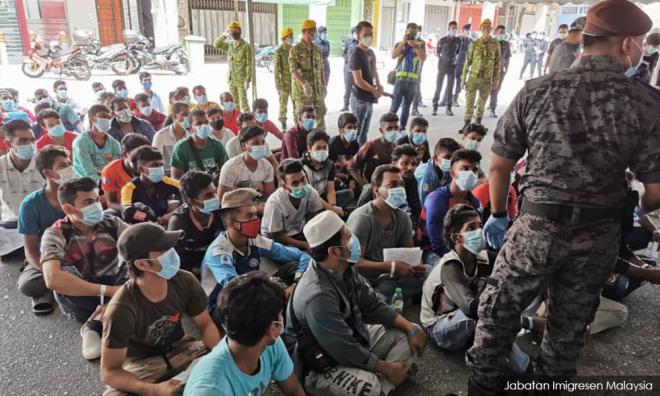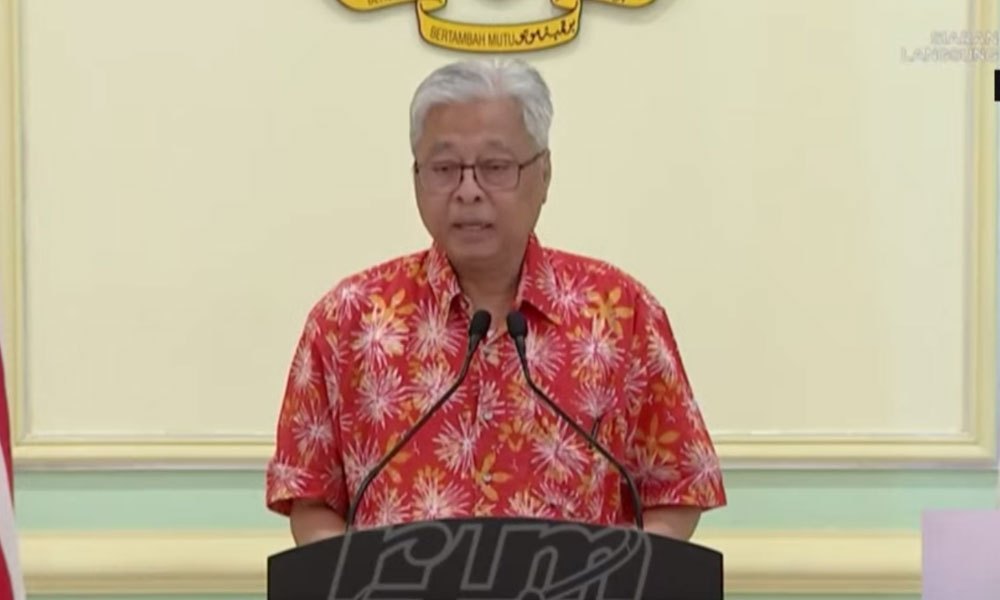
Defence Minister Ismail Sabri Yaakob said Indonesia is working together with Malaysia to facilitate the deportation of its citizens who are undocumented migrants here back to their country.
Other countries that have agreed or expressed willingness to coordinate with Malaysia for the return of their citizens who are being held at immigration depots currently include Nepal, Bangladesh and Cambodia, said Ismail (photo).

“The Immigration Department along with the Foreign Ministry have held a meeting with the Indonesian embassy about the return of Indonesian undocumented migrants on May 28.
“The Malaysian government would like to thank the Indonesian government for their cooperation.
“The Immigration Department is also in discussions with the embassies of Nepal and Bangladesh to send back 246 Nepalese and 2,476 Bangladeshi undocumented migrants who are in the immigration depots.
“The Cambodian embassy has also said they are ready to receive their 67 citizens who are in the immigration depots,” Ismail said in his press conference today.
The government is working to reduce the number of people in crowded immigration detention centres amid outbreaks of Covid-19.
Following the meeting with the Indonesian embassy, Ismail said they have decided that all undocumented Indonesian migrants to be sent back will have to undergo the antigen rapid test first, where the embassy’s representatives will also be present.
The undocumented migrants will be deported in two phases, with phase one involving 2,189 Indonesians in Peninsular Malaysia immigration depots and another 672 in Sabah immigration depots.
Under phase one, 450 Indonesians will be flown back via three flights to Jakarta, Medan and Surabaya on June 6 followed by another round on June 10 which will involve another 445 Indonesians to the same three locations.
Another 1,294 Indonesians will depart to Medan via the sea on June 22, Ismail said.
Phase two, he said, will involve 2,623 undocumented Indonesian migrants, who will be sent back in two months’ time.
However, the details for phase two have yet to be settled, he said.
The Malaysian government is also allowing representatives from the Indonesian embassy to make consular visits to handle the documentation for the undocumented Indonesian migrants who do not have travel documentation, he said.
When asked whether Malaysian students will be allowed to return to Indonesia to continue their studies there, Ismail said overseas travel is banned for all Malaysian citizens, including students.
“We do not allow our citizens to leave our country to other countries, especially those that are high-risk. This includes students and so on.
“And some countries do not accept other citizens into their countries, either,” he said. - Mkini
No comments:
Post a Comment
Note: Only a member of this blog may post a comment.